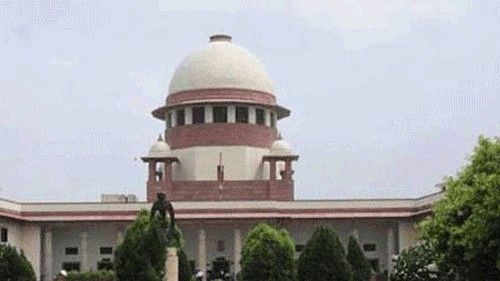
Supreme Court of India.
Credit: PTI Photo
The Supreme Court has said appointments can be made only to those posts on which clear and anticipated vacancies have been advertised.
The top court upheld the Himachal Pradesh High Court's judgement finding flaw in 2013 appointments of two candidates as civil judge (junior division) in the name of future vacancies.
A bench of Justices C T Ravikumar and Sudhanshu Dhulia said such vacancies which did not exist at the time of advertisement, are for the future, i e, next selection process.
Holding that a judge is a judge of facts, as much as he is a judge of law, the bench said the position of law has been correctly followed by the Himachal Pradesh High Court."What the High Court missed was the context, the facts and the circumstances of the case," the bench said.
The bench, therefore, held that unseating the present appellants Vivek Kaisth and Akansha Dogra, from their posts would not be in public interest, as they have completed 10 years in service and have been promoted as well.
"We are of the considered view that there has been a violation of the process in making selection/appointment of the appellants, in as much as the vacancies on which the appellants were appointed were never advertised, and strictly speaking these vacancies cannot be termed as “anticipated vacancies” for the simple reason that these vacancies were only created on 18.04.2013 i.e. after the selection process had begun and advertisement was issued on 01.02.2013," the bench said.
The bench rejected the High Court's bid to place the entire blame on the post selection exercise undertaken by the State Commission.
"This is not the correct position, though undoubtedly the Commission as the selecting authority must ultimately bear the brunt, yet the blame must be shared equally by the State Government and the High Court," the bench said.
Noting the appellants in the present case have been working as judicial officers, the bench pointed out they are now Civil Judge (Senior Division) with a rich experience of 10 years of judicial service behind them.
"It is nobody’s case that the appellants have been appointed by way of favouritism, nepotism or due to any act which can even remotely be called as “blameworthy”. There is hence a special equity which leans in favour of the appellants," the bench said.
Using its powers under Article 142 of the Constitution, the bench set aside the High Court's order as far as it quashed the selection and appointment of the appellants.
